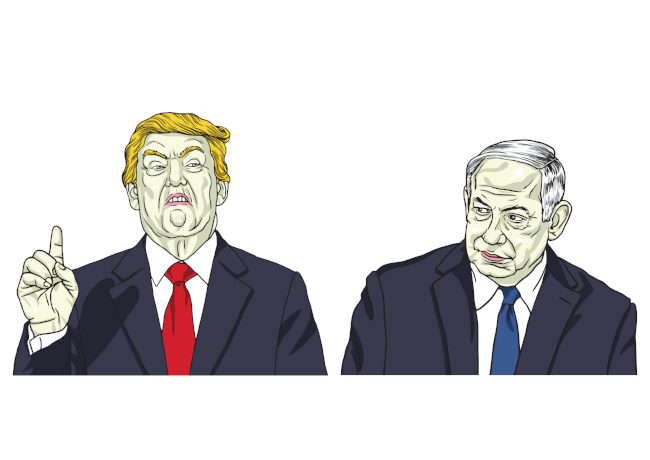by Shahed Ghoreishi
“I will never apologize for the United States—I don’t care what the facts are.”
No, this is not President Trump. It’s August 2, 1988, and then-Vice President George H.W. Bush was giving his official take on events that that had happened the previous month.
On July 3, 1988, the USS Vincennes, on patrol in the Persian Gulf during the Iran-Iraq war, shot down Iran Air Flight 665 in Iranian territorial waters, killing all 290 passengers on board including 66 children. The United States did agree to a $131.8 million settlement, but the lack of apology as well as President Ronald Reagan’s egregious decision to award the commander of the ship the Legion of Merit for his actions continue to haunt U.S.-Iran relations. The Reagan administration deemed its explanation sufficient that experienced U.S. Navy personnel mistook a large and slow Airbus A300 for a small and fast F-14 Tomcat fighter jet.
Unfortunately, indifference to the facts continues to be a trend, and not an exception, in U.S. foreign policy towards Iran and the greater Middle East. Clear-cut examples include the false claims that Saddam Hussein had weapons of mass destruction, which led to a disastrous war.
Last week a subtler but just as ill-conceived strategy was revealed to encourage instability and protests within Iran to weaken the government—via a joint Israeli and American working group. According to an Israeli official involved in the process, “Nobody is seriously thinking about regime change, but this team is trying to see if we can use the internal weaknesses of the Iranian regime in order to create more pressure that will contribute to changing Iranian behavior.”
Given the current state of complete disarray in the region, this underreported Iran-destabilization strategy should be of grave concern. The multitude of destabilized states has been calamitous for the region.
The death toll from the Iraq War, for instance, has included hundreds of thousands of Iraqis and nearly 5,000 U.S. soldiers. The same invasion eventually led to the civil war in Syria and the creation of the Islamic State. The millions of refugees that have resulted have placed pressure on the resources and governments of nearby Lebanon, Jordan, and Turkey. They have also affected the politics of multiple European countries and even the United States, as right-wing parties have used refugees as a rallying cry for discrimination and closed borders. In Yemen, the U.S.-backed and Saudi Arabia-led intervention has caused a large-scale humanitarian disaster, including outbreaks of cholera and famine.
But all of these would look like a cakewalk next to a destabilized Iran. With an ethnically diverse population of 82 million—equivalent to the populations of Yemen, Iraq, and Syria combined—Iran destabilized would have reverberations around the globe. Iran’s powerful security architecture already has a powerful foothold from Beirut to Tehran. None of the destabilized states had anything close prior to their collapse. Oil prices could skyrocket if Iran uses its strategic options in the Strait of Hormuz.
It is not in the U.S. interest to see Iran destabilized, period. Nevertheless, the Trump administration has decided to remove itself from the Iran nuclear deal despite the International Atomic Energy Agency’s multiple confirmations that Iran has complied with the deal. The administration has also re-implemented sanctions to cause economic anxiety, sold weapons to Iran’s regional rivals, and had key officials and advisors attend a conference led by an Iranian opposition cult that once killed Americans and is looking to take over Iran. Interestingly, bots of unknown origin supporting this approach have surged in social media in recent months.
As Iran experiences genuine protests, Iran’s activists and protestors shouldn’t be lumped together with external actors who want to destabilize the country. In fact, the new U.S.-Israel working group provides the Iranian government with an easy way to delegitimize honest protestors that have been an important part of Iran’s history since 1906. Meanwhile, the economic sanctions will move Iran backwards, causing greater authoritarianism and degrading the human rights of tens of millions of Iranians. Trying to destabilize and manipulate Iran’s organic political development is virtually all risk and no reward. Just ask Mohammad Mossadegh.
An isolated, destabilized Iran will hurt U.S. allies in the region and cause blowback, per usual. Washington has engaged in enough self-inflicted crises. Economic and diplomatic engagement with Iran, on the other hand, can help restore some stability to a chronically unstable region.
Shahed Ghoreishi is a graduate of the Johns Hopkins School of Advanced International Studies. His work can be found in The Atlantic, The World Post, and Lobe Log. You can follow him on Twitter @shahedghoreishi.






We all love chaos with NO suggested alternative(s)!?
I’m sure our parents and relatives would love us all too!
A bunch of people, none of whom live in Iran, debating matters that are none of their business. It is none of your business, do you all understand, you who comment?
Leave Iran to the Iranians.